- About Us
- Columns
- Letters
- Cartoons
- The Udder Limits
- Archives
- Ezy Reading Archive
- 2024 Cud Archives
- 2023 Cud Archives
- 2022 Cud Archives
- 2021 Cud Archives
- 2020 Cud Archives
- 2015-2019
- 2010-2014
- 2004-2009
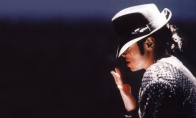 |
On Looking For The Second Act |
“Hoooooooooooo!”
Let me start this by stating, loudly and unequivocally, that I hope this does not become another ebullient Michael Jackson eulogy. While Jackson was certainly an accomplished musician, composer, songwriter, dancer, and the ultimate style guru of the 80s and early 90s, he was also something more. He was subversive, a challenge to our cultural norms and assu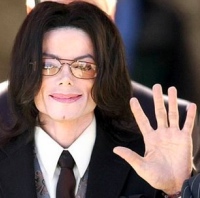 mptions. He was someone who we didn’t understand, and in our lack of understanding, we judged.
mptions. He was someone who we didn’t understand, and in our lack of understanding, we judged.
I first heard the news of his death while hitchhiking back to my car after a friend and I had spent a ten-day stint in the northern Maine woods. Our first reaction was shock, our second disbelief. “But he was so young!” my friend Camilla said, and I agreed. We were hitchhiking back to our car and the driver who’d picked us up took a sip from a travel mug of beer and agreed. “Shit,” he said, “even I liked his dancin’.”
But my half drunken friend forgot something in that statement. What he meant to say, what we all really wanted to say, was that we used to like his dancing, just like we used to like Michael. Back twenty years ago everyone did. He was America’s darling, not a media joke, not a characterization to be maligned at our every whim. He was a product that we joyfully exported—in the late-1980s he met with more presidents and prime ministers than our last president ever did. In the nearly forgotten last decade of the cold war he was a living in the shining city on the hill, he was Marlboros and blue jeans; he was everything we had that they wanted.
And then, it all came crashing down around him.
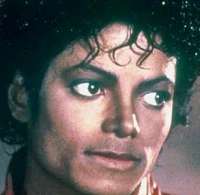 It started off slowly. First it was the glove- that sequined piece of leather. It’s okay, we said. He’s an artist; he’s eccentric. But then came the plastic surgery. The nose. The chin. The skin lightening- something Jackson explained countless times as being due to vitiligo. Album sales plummeted as the allegations of child abuse multiplied. He went into hiding, only to come out every few years protesting innocence and assuring us of his normality.
It started off slowly. First it was the glove- that sequined piece of leather. It’s okay, we said. He’s an artist; he’s eccentric. But then came the plastic surgery. The nose. The chin. The skin lightening- something Jackson explained countless times as being due to vitiligo. Album sales plummeted as the allegations of child abuse multiplied. He went into hiding, only to come out every few years protesting innocence and assuring us of his normality.
And yet, his weirdness seemed to overshadow his artistry in the same way that his artistry now overshadows his weirdness. Did Jackson reach the heights of musical stardom? Of course he did. He brought a real and genuine quality to popular music—a style and a substance that it had never seen, and he quickly mastered the art of the music video in a way that no one has yet learned to master whether it be on You Tube, Hulu, MySpace or Facebook.
Yet his legacy is mixed, and I am as troubled by the glossing over of this as I was by the glossing over of another famous celebrity. Excepting their race and their location, O.J. Simpson and Michael Jackson have one major thing in common. They were both victims of the court of public opinion, only they were judged in vastly different ways.
I remember very vividly being a junior in high school when O.J’s verdict was passed down. I was sitting in my high school cafeteria and everyone—teachers and students—erupted in cheers and applause. Now, as an adult, in recollecting that moment, I can’t help but be awed by how obviously guilty he was. O.J. was let off on a series of technicalities, but that didn’t matter, because he was deemed innocent by the mass of Americans. We were excited and relieved. 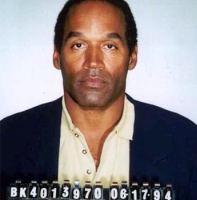 The Juice was out.
The Juice was out.
But even then, did any of us really ever question his guilt? Wasn’t it obvious to anyone who looked? I honestly don’t remember. It seems that we all wanted him to be innocent so badly that we allowed ourselves to believe that he was. How different could Michael be?
Jackson’s case, I’ll fully admit, is less compelling. There are few things that stir the passion for justice more than child abuse. In fact, I may be one of the few among my friends and my countrymen who, almost from the beginning, believed that the odds are well in favor of the idea that Michael didn’t actually do anything to those children. For me it comes down to two basic points. First, that Macaulay Culkin, who spent more time alone with Michael than almost any other, asserted that he had never tried anything; secondly, that both charges made against Michael (in 1993 and 2003) were made by families with a large financial motivation. In fact, the father of the first child stated that he would be “set for life” if he pressed molestation charges.
Was Michael weird? Certainly. Was he a child abuser? Who knows? But the thing that is so bothersome and disappointing is how quickly everyone has forgotten the past fifteen years in deference to the previous thirty. As though the things that we, the court of public opinion, never really believed the charges to begin with. But if we didn’t believe them, then why did we ostracize Michael? Why did we drive him nuts? Why did we allow the media and his enemies to force him into seclusion and drug addiction? Why didn’t we take a stand against all of this and protect one of the most original artists and profoundly sensitive human beings of the last half-century?
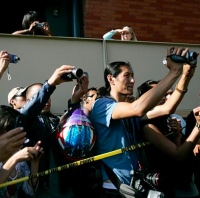
Perhaps if, in his life, we could have shown Michael the same amount of understanding and empathy that we’ve shown him in his death, then he never would have become such a tortured and tragic figure. It’s entirely possible that if we’d given him a little more understanding and a little less abuse at the hands of a gawking paparazzi, then he could very well have been a happily adjusted man left quietly alone to make his music and raise his children.
F. Scott Fitzgerald once wrote that there are no second acts in American life. Well, perhaps Fitzgerald was being as ambiguous as Michael. Perhaps in American life, death is the ultimate second act, where the good that men do can live after them, while the evil is interred with their soul.
So let it be with Michael.
Tim Rich is a freelance writer and man about town based in Portland and Bar Harbor, Maine. He is a professional political activist. He spends his free time hiking, reading, and preparing for the National Toboggan Championships, which he fully intends to win.
